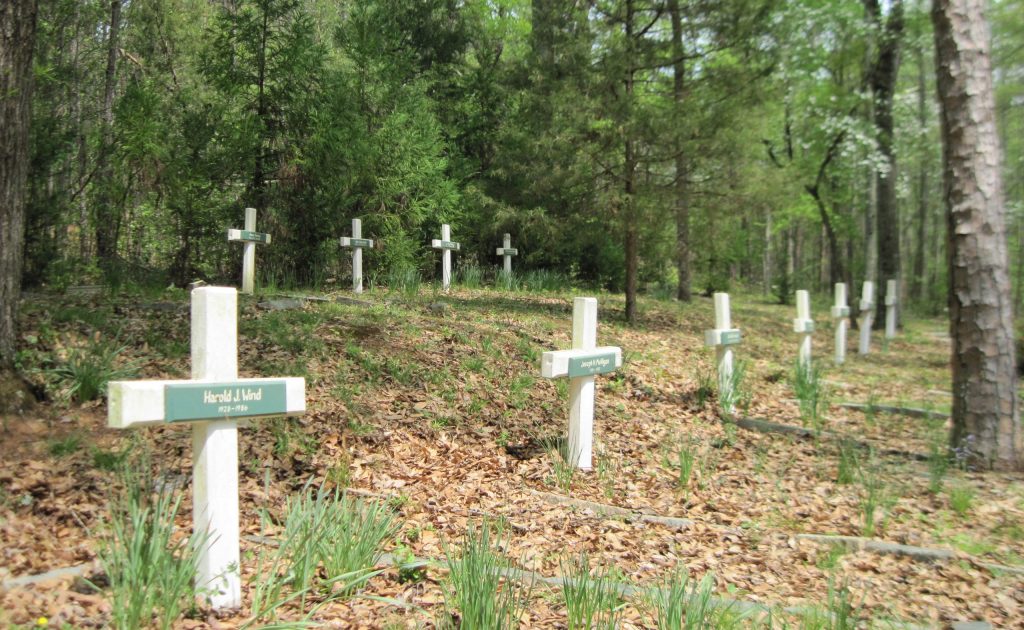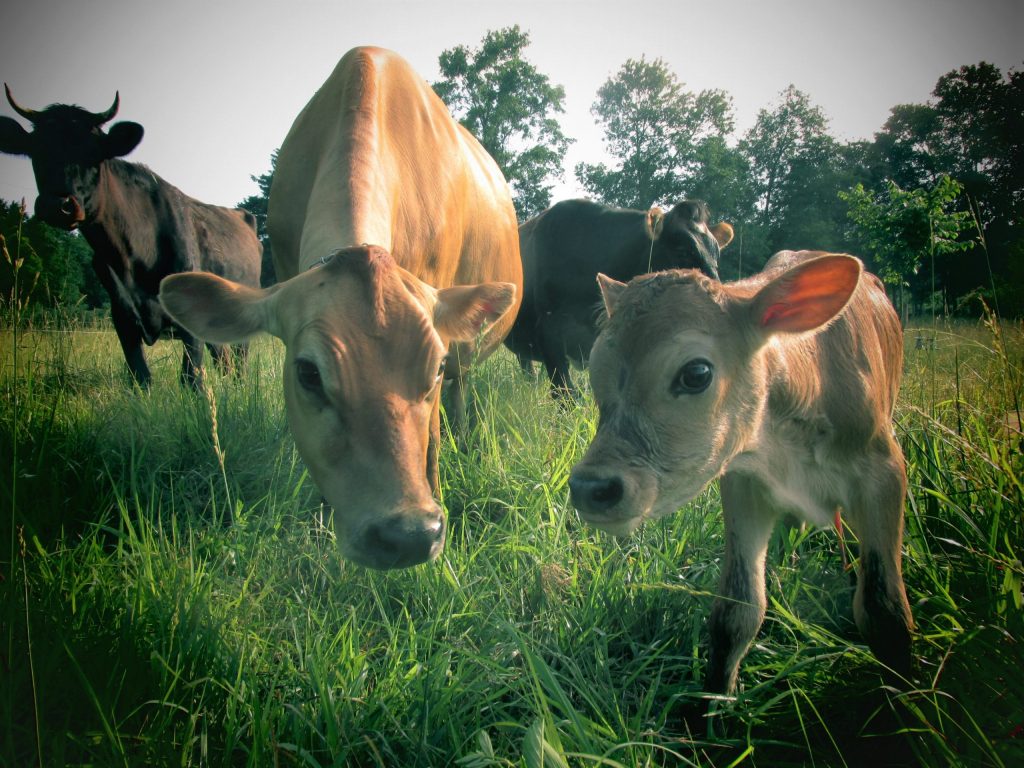
The Land
We live on 260 acres of fields, forest, and ponds in rural northeast Georgia, and this land helps to shape the character of our hospitality work. Many of the refugees who come to Jubilee are subsistence farmers forced from their homeland by violence. The gardens and pastures at Jubilee have provided a space where they can connect with the earth again and where they can share their agricultural knowledge and skills.
We grow a good portion of the food that we eat, which allows us to eat healthfully at low cost while caring for the land. Growing food also affords us the opportunity to do meaningful work together in the outdoors, which we enjoy. We cultivate about 20 acres of the land for vegetables and fruits, and we keep another 10 acres in pasture. Our biggest crops are sweet potatoes and blueberries. In our gardens we also grow beans, squash, peppers, tomatoes, eggplant, collards, kale, and lettuce. Our vines and trees give us watermelons, pears, persimmons, grapes, figs, jujubes, mulberries, and chestnuts. We keep about a hundred laying hens, and a few head of cattle for dairy and beef. We enjoy sharing from this abundance with our neighbors and friends.

The Neighbor's Field
In 2011, when former refugees from Burma (Myanmar) began settling permanently in and around our town, we fenced in a new field to provide a space where these neighbors could garden and raise animals. The Neighbor’s Field, as we call it, includes five acres of garden land divided into quarter-acre plots and another seven acres of pasture. It is organized as a community garden, where participants contribute a small fee each year to cover the cost of soil improvements and water. A number of participants have used their plots to grow Asian vegetables for the Atlanta market as a supplementary source of income. Others grow vegetables and herbs to use in their homes. The Neighbors’ Field also serves as a very beautiful community gathering space where people work alongside one another tending their garden plots and their animals in the long summer evenings.

The Cemetery
Jubilee’s cemetery started out as a practical necessity. When a Cuban refugee died here in 1980, we knew we needed a cemetery. We buried Jesus Torres on a hill that marks the southwest corner of Jubilee property. Since then we have given dozens of others a dignified burial in a plot marked by a concrete cross and a hand-painted nameplate at the head of a grave that we dug by hand and filled in the same way. Always there has been a graveside service with scripture readings and songs and words of eulogy.
We now think of our cemetery as offering another final kind of hospitality to people who are poor and marginalized. Although some community members and neighbors are buried here, most of the graves belong to folks in one of three groups: men executed by the State of Georgia, formerly homeless people from the streets of Atlanta, and former refugees.

